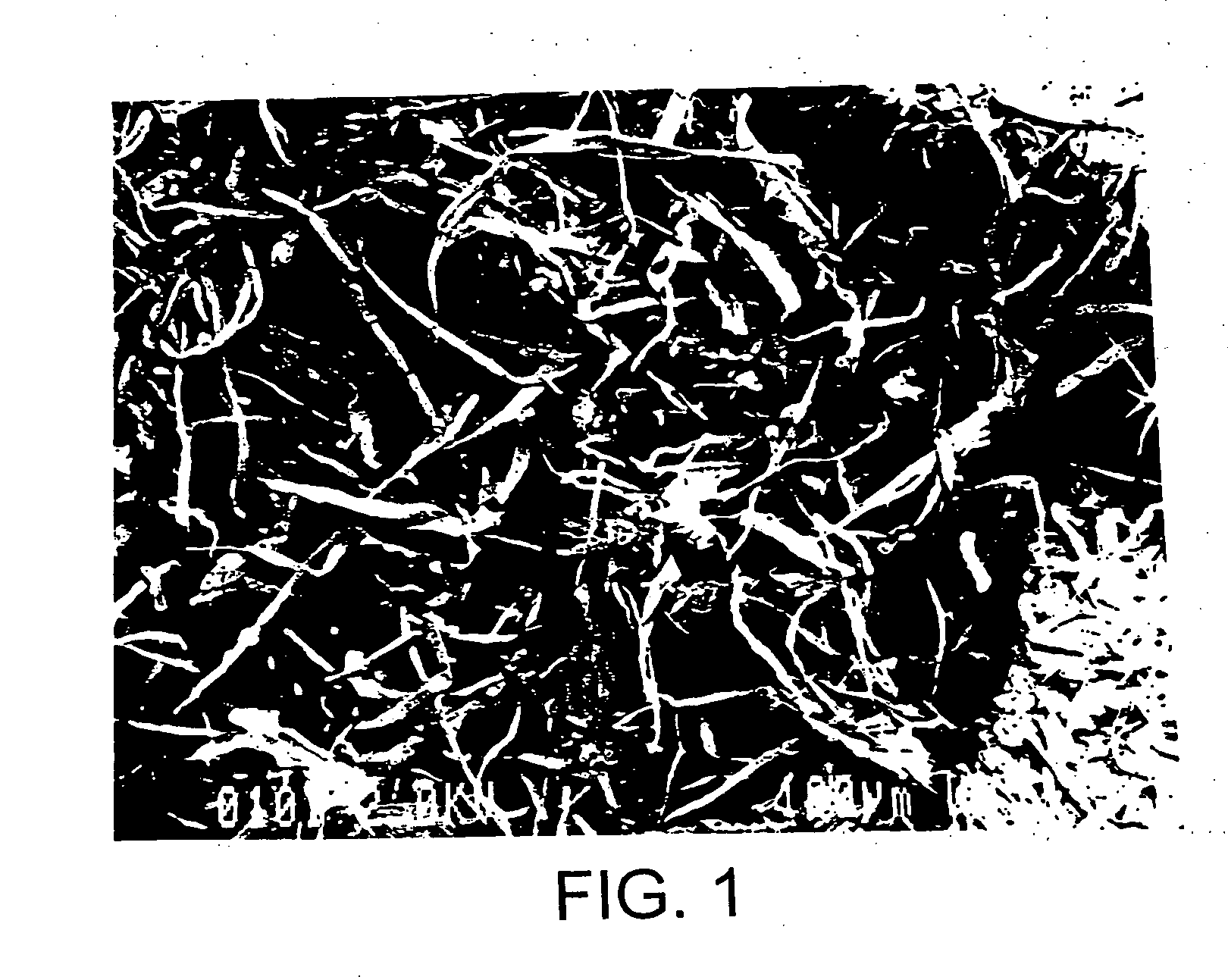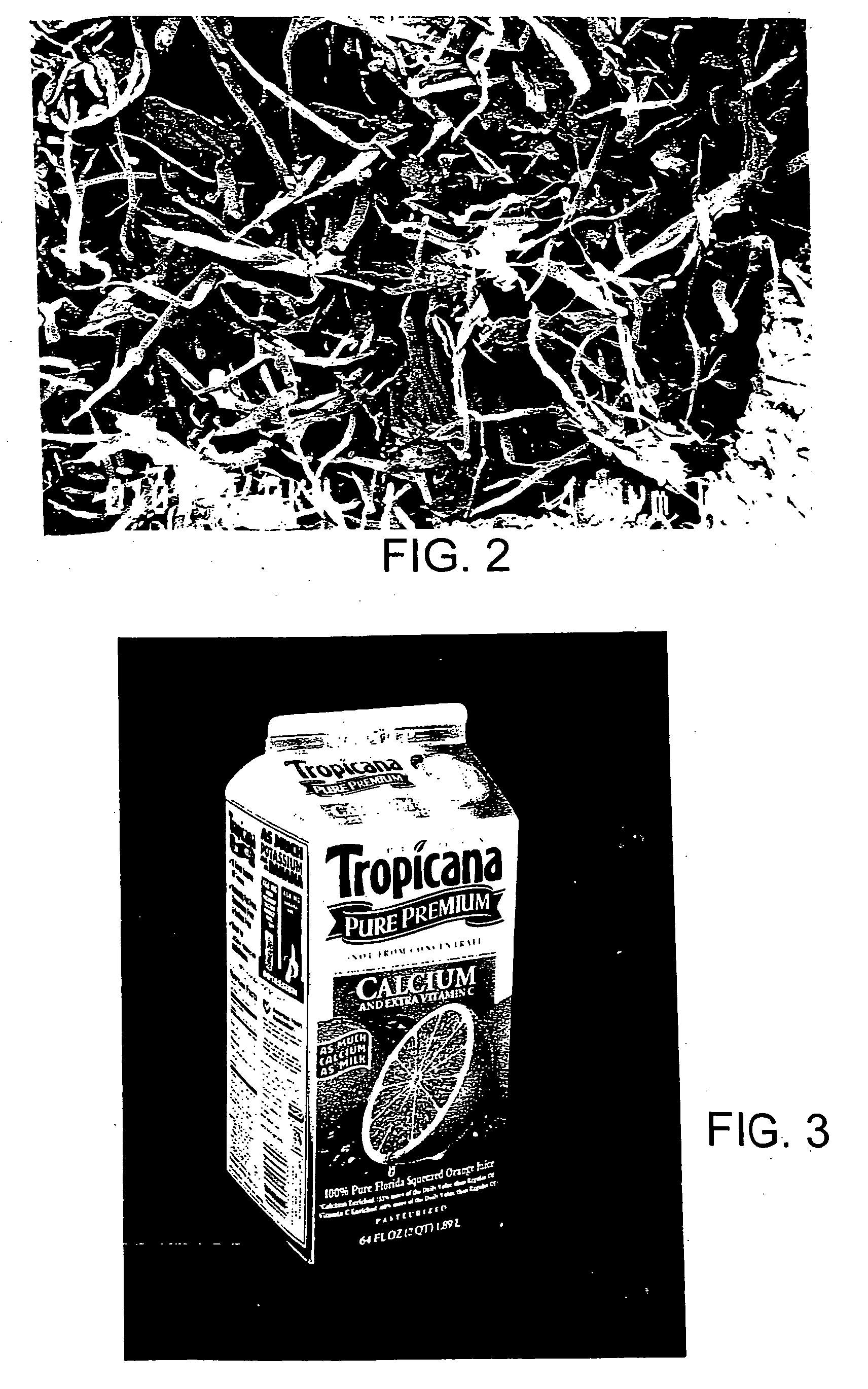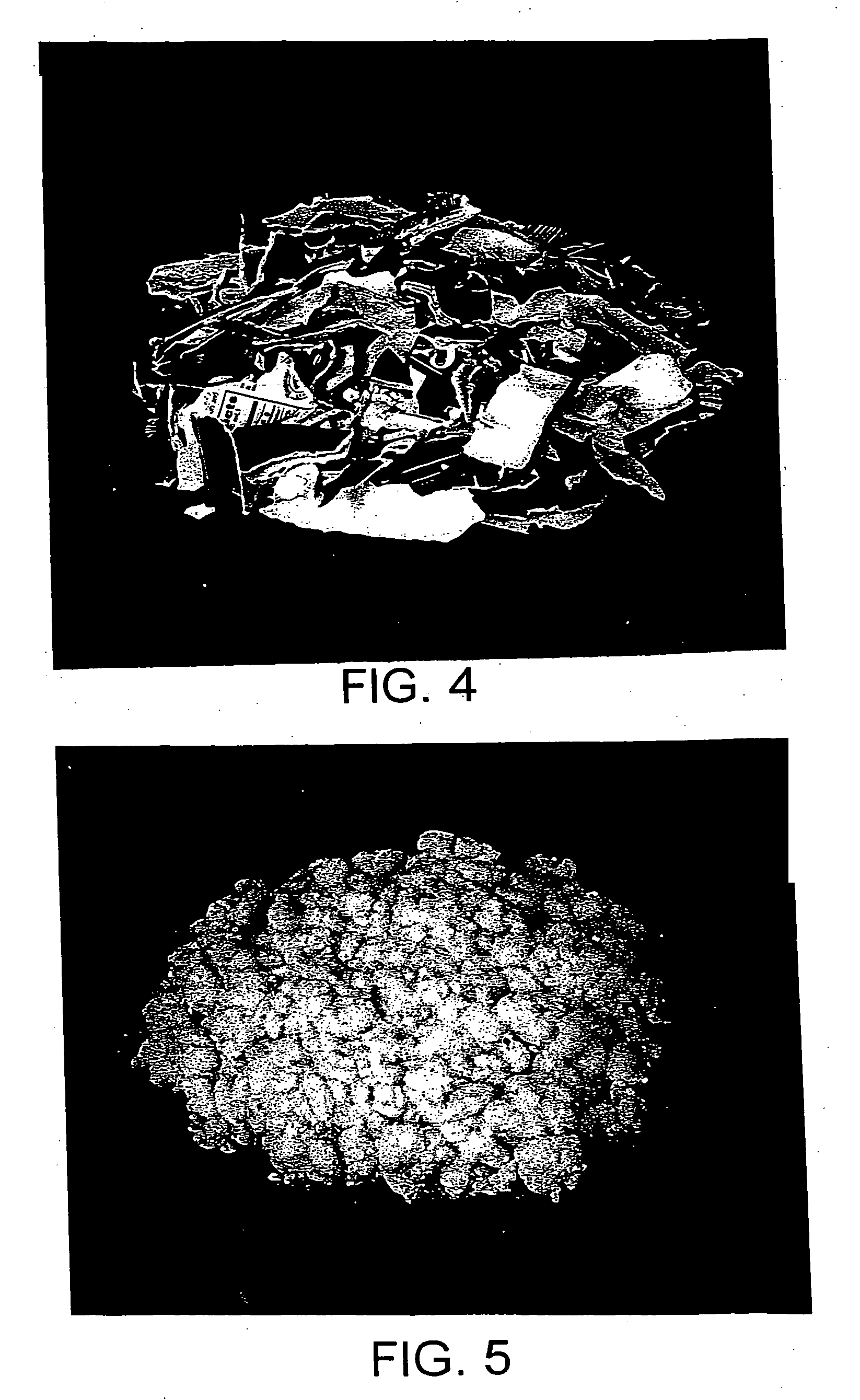Compositions and composites of cellulosic and lignocellulosic materials and resins, and methods of making the same
a technology of lignocellulosic materials and composites, which is applied in the direction of pulp properties modification, synthetic resin layered products, wood working apparatus, etc., can solve the problems of ever-increasing amount of waste cellulosic and lignocellulosic materials, and achieve the effect of increasing energy absorbed and high impact resistan
- Summary
- Abstract
- Description
- Claims
- Application Information
AI Technical Summary
Benefits of technology
Problems solved by technology
Method used
Image
Examples
example 1
[0099] A 1500-pound skid of virgin, half-gallon juice cartons made of poly-coated white kraft board was obtained from International Paper. One such carton is shown in FIG. 3. Each carton was folded flat.
[0100] The cartons were fed into a 3 hp Flinch Baugh shredder at a rate of approximately 15 to 20 pounds per hour. The shredder was equipped with two rotary blades, each 12″ in length, two fixed blades, and a 0.3″ discharge screen. The gap between the rotary and fixed blades was 0.10″.
[0101] A sample of the output from the shredder, consisting primarily of confetti-like pieces, about 0.1″ to 0.5″ in width and about 0.25″ to 1″ in length, is shown in FIG. 4. The shredder output was fed into a Thomas Wiley Mill Model 2D5 rotary cutter. The rotary cutter had four rotary blades, four fixed blades, and a 2 mm discharge screen. Each blade was approximately 2″ long. The blade gap was set at 0.020″.
[0102] The rotary cutter sheared the confetti-like pieces across the knife edges, tearing t...
example 2
[0103] Composites of texturized fiber and resin were prepared as follows. A standard rubber / plastic compounding 2-roll mill was heated to 325-400° F. The resin (usually in the form of pellets or granules) was added to the heated roll mill. After about 5 to 10 minutes, the resin banded on the rolls (i.e., it melted and fused on the rolls). The coupling agent was then added to the roll mill. After another five minutes, the texturized cellulosic or lignocellulosic material was added to the molten resin / coupling agent mixture. The cellulosic or lignocellulosic fiber was added over a period of about 10 minutes.
[0104] The composite was then removed from the roll mill, cut into sheets, and allowed to cool to room temperature. Batches of about 80 g each were compression molded into 6″×6″×⅛″ plaques using standard compression molding techniques.
[0105] One composition contained the following ingredients:
Composition No. 1IngredientAmount(g)High density polyethylene1160Old newspaper2240Coup...
example 3
[0119] Foamed epoxies are used in thermal insulation applications where superior water resistance and elevated temperature properties are desired. Such epoxies can be reinforced with texturized fiber prepared according to the procedure in Example 3. Fillers such as calcium carbonate may optionally be used to obtain some cost reductions. However, overloading with filler can weaken the strength of the foam cell walls, particularly when the foam densities are in the range of five pounds per cubic foot or less, since such low foam density can result in thin, fragile walls within the foam. Filler loadings are generally in the four to five pounds / hundred weight (phr) of resin. Reinforcing with texturized fiber can also provide for reduced weight and cost. In addition, improved strength can be realized because of the high length-to-diameter (L / D) ratios of the texturized fiber. It is not unreasonable to employ up to 30 phr of the fiber.
[0120] A typical formulation includes:
IngredientPar...
PUM
| Property | Measurement | Unit |
|---|---|---|
| flexural strength | aaaaa | aaaaa |
| tensile strength | aaaaa | aaaaa |
| densities | aaaaa | aaaaa |
Abstract
Description
Claims
Application Information
 Login to View More
Login to View More - R&D
- Intellectual Property
- Life Sciences
- Materials
- Tech Scout
- Unparalleled Data Quality
- Higher Quality Content
- 60% Fewer Hallucinations
Browse by: Latest US Patents, China's latest patents, Technical Efficacy Thesaurus, Application Domain, Technology Topic, Popular Technical Reports.
© 2025 PatSnap. All rights reserved.Legal|Privacy policy|Modern Slavery Act Transparency Statement|Sitemap|About US| Contact US: help@patsnap.com



